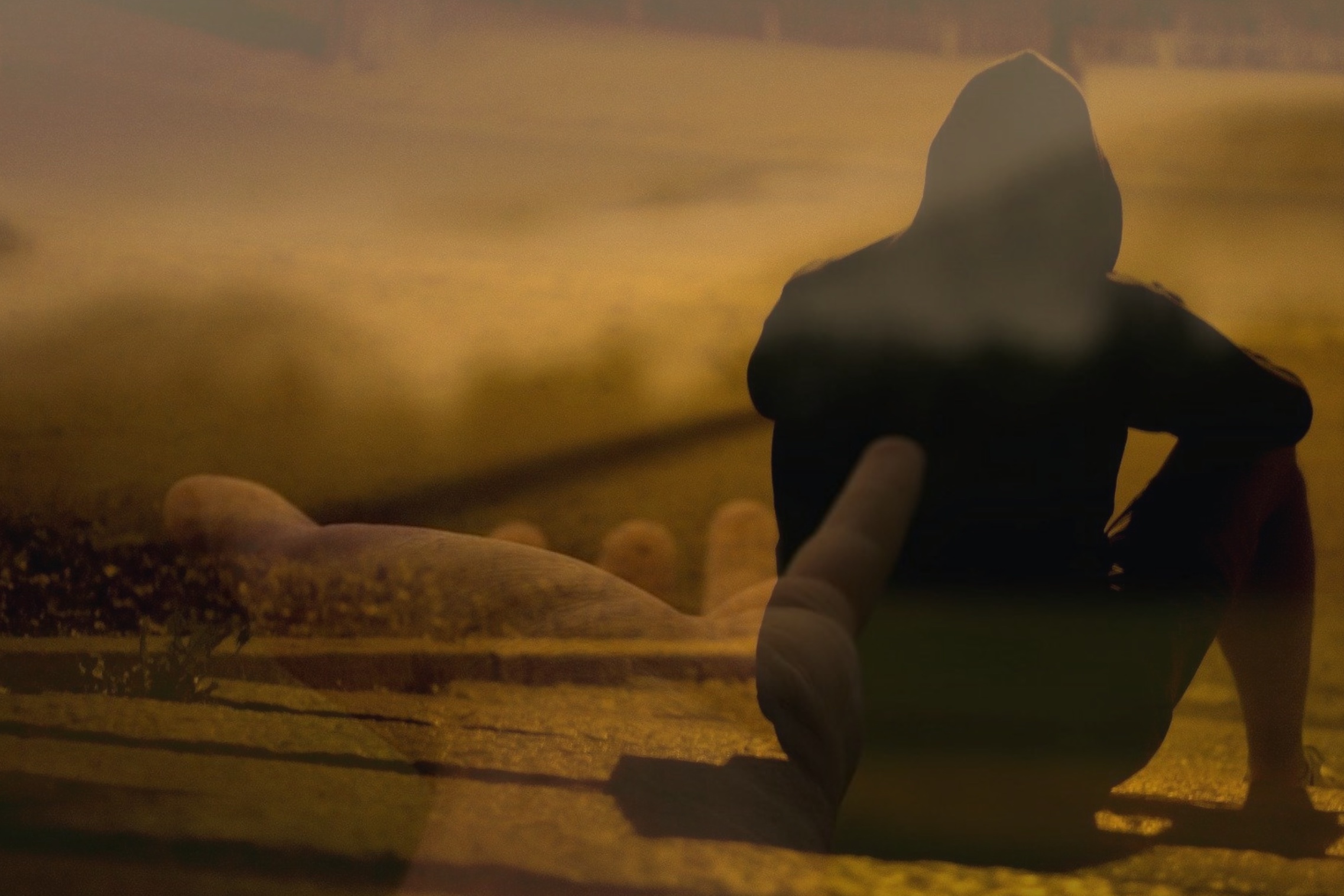


An islander who was diagnosed as being bipolar over 20 years ago has opened up about his experience in a bid to help break down the stigma around severe mental illness.
World Bipolar Day is celebrated each year on 30 March, the birthday of Vincent Van Gogh, who was posthumously diagnosed as having bipolar disorder.
Peter was diagnosed with bipolar, a condition identified by two mood states, depression and mania, in his early twenties. While on an extended trip around the world, Peter says he went from being “really happy-go-lucky” to withdrawing, and not wanting to take part in things.
“I stayed in my youth hostel for three weeks and became a prisoner in there,” he recalls. “I clearly started having a nervous breakdown with depression. I say ‘by the grace of God’ because I don’t know how I did it but I got home to England and a few weeks later it became apparent to my family that I was mentally ill and I was diagnosed with depression.”

Pictured: Peter first started withdrawing and not wanting to take part in things.
“In the autumn of that year, my behaviour changed, I became outgoing, I started being reckless and not making reasonable decisions, which wasn’t like me and it became apparent it was a manic episode.
“It was a frightening experience from both sides. I had never experienced anything like that before, my mental health had always been good prior to that.”
Peter says that following his diagnosis, he lost life as “he knew it”, from his work to his friends, whom he says were too young “not mature enough” to understand the reason he was behaving the way he was. He then decided to move to Jersey for a "clean break."
“When I came to Jersey, I had a number of episodes in a very short period of time because I was not looking after myself, I was partying, I was staying up late, I was not eating properly, I was not sleeping properly and sleep is key, as well as the lack of stress where you can avoid it.”

Pictured: Peter has been taking medication every night since his mid 20's.
Peter says his life began to slow down and settle after he got married and started taking “responsibility" for his actions. He has been taking medication every night since his mid 20’s and hasn’t had an episode in over 20 years.
“I realised that I was going to have to look after myself better and at the very least try and prevent it if I could, rather than gamble on my health.
“At the end of the day, there is no recovery from this, no one is going to give me a certificate to say that I am cured. The respite I have had for 20 years is down to several factors, medicine, lifestyle, I gave up alcohol… it’s a package that have I have realised and formulated. I will have it for the rest of my life."
While he is pleased to see the stigma around mental health and mental illnesses has gotten better since the 90’s, Peter says it still lingers and that’s the reason why he didn’t feel confident about talking openly about bipolar in the media.
“I think that when you have people like Prince William and Kate on TV and they are talking about mental health issues, and it’s the same with people in sport or artists coming forwards, and they say ‘we struggled and we have come through the other side’, it is really helpful for ordinary people who suffer from mental health.
“Having worked in the same industry I still would not feel confident about completely losing my anonymity… I am well and I am still concerned to keep my anonymity, it’s really sad.”

Pictured: Peter says public figures coming forward to speak about their mental health helps "ordinary people."
He also explains that when he applied for jobs in the past, he had to lie about his mental health on application forms because he knew he wouldn’t get the job if he was open about it.
Peter chose to spoke to help break down the lack of understanding about severe mental illnesses. While he says he hasn’t lost a friend in recent years after telling them of the condition, Peter feels the perception of the general public is still “quite poor”.
“Stigma tends to be just fear,” he says. “Stigma is not necessarily about people’s illness, it’s about the understanding of the illness. If you sat down a group of people and asked them to explain bipolar, most people would have a poor handle of this illness. It’s a human thing, if you do not understand something we are immediately afraid.
“It’s only an illness! People still have a perception of people with mental illnesses being violent, but the statistics are in fact that these people are far more likely to be a victim of violence than the perpetrator. This is the kind of stigma we need to break over time.”
Pictured: Stephen McCrimmon founded Focus on Mental Illness last year.
Peter praised the work of charities like Focus on Mental Illness, founded by Stephen McCrimmon to help islanders with serious mental illness as well as their families, and campaign for greater understanding of the conditions, in helping break down the stigma and improving the outcomes for those affected.
One of the ways Focus is aiming to bring greater awareness of severe mental illness is by having islanders learn from people with lived experience of what he describes as the “forgotten illnesses of mental health”.
“When I was diagnosed, it was very much the theory that you were well and at home or you were unwell and in hospital, there was no happy middle,” Peter recalls.
“If you were well, you had no support and if you are unwell you were incarcerated in hospital, that’s no way to treat people.
“We need peer support and to try to keep people out of hospital and keep then in society and give them as much help as they can.”

Pictured: Peter says that an understanding family and peer support is key in helping those living with mental illnesses.
“When I came out of hospital for the last time, I had a community psychiatry nurse,” Peter adds. “He used to visit me once a week, we would go for a coffee, it was really formal but that really helped me get back in the community. He became a friend, he came to my wedding, he was there at my daughter’s christening.
“My wife was able to call him, and he would come down and he would sit and talk. He would have kept me out of hospital a number of times, it was that early intervention. He would speak to the doctors and adjust my medication. He was really helpful.”
Peter says that an understanding family and peer support is key in helping those living with mental illnesses. But he also believes more could be done in the workplace and within the community as a whole to help.
“If someone has bipolar or depression, help them in the workplace, things can be done to reduce stress and put them in a situation where they can thrive.”
Comments
Comments on this story express the views of the commentator only, not Bailiwick Publishing. We are unable to guarantee the accuracy of any of those comments.